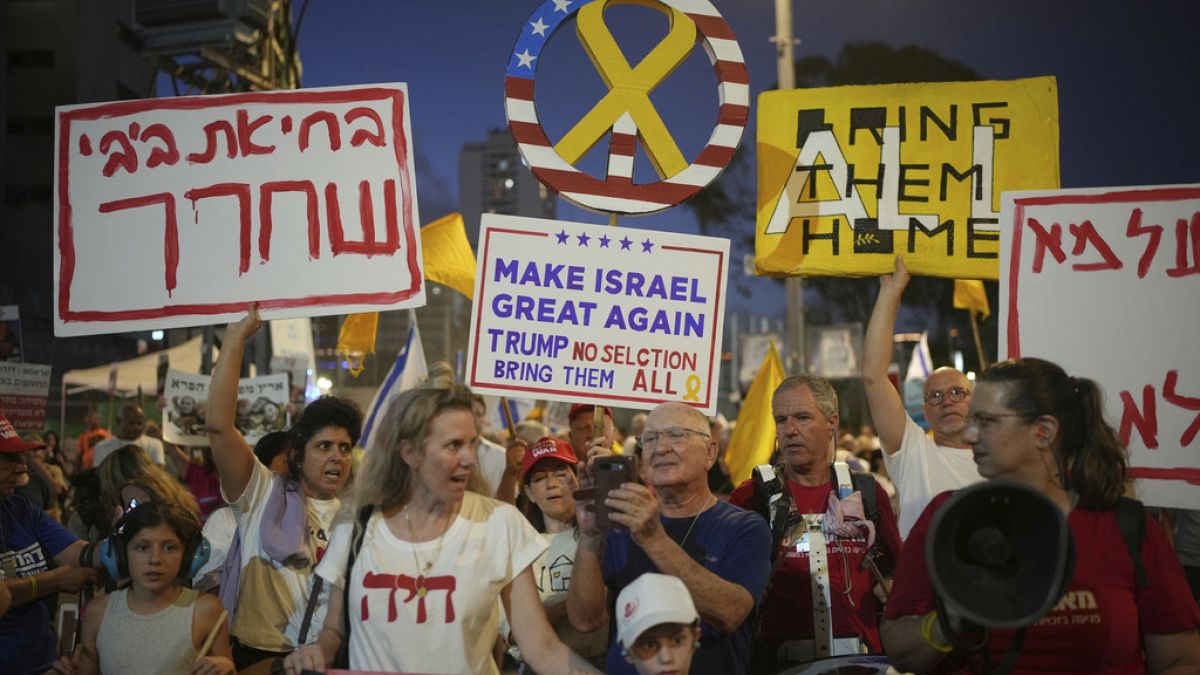

In recent news, the international stage has seen significant diplomatic movements, offering hope for peace and cooperation. Amidst these developments, a rally in Tel Aviv echoes the larger backdrop of ongoing negotiations between Israel and Hamas, while broader diplomatic efforts unfold with implications for countries like Moldova and Syria.
In Tel Aviv, citizens gathered for a rally to advocate for the release of hostages held in Gaza. This demonstration coincided with reports of the Israeli security cabinet convening to deliberate on Hamas’ response to a proposed ceasefire and hostage release deal. This public show of solidarity highlights the critical importance of diplomatic channels and the collective yearning for resolution and peace.
Meanwhile, in a parallel move towards improved relations, leaders from the European Union have reiterated their support for Moldova’s aspirations to join the EU. During a landmark summit, EU leaders announced plans for increased investments aimed at bolstering Moldova’s economy and reducing its susceptibility to external pressures, particularly from neighboring Russia. This commitment underscores a broader vision of integration and stability within the region, fostering growth and security for its citizens.
On a diplomatic front involving the Middle East, Israel prepares to negotiate with Hamas in a bid for peace. An Israeli negotiation team is set to fly to Doha to engage in talks aimed at finalizing a ceasefire agreement. Encouragingly, both Israel and Hamas have shown a willingness to explore this opportunity, with a positive response from Hamas to the ceasefire proposal mediated by the United States. The efforts of US President Donald Trump in engineering this ceasefire initiative underscore the international community’s investment in peace and security in the region.
In a related development, Hamas has expressed readiness to enter ceasefire negotiations with a “positive spirit.” The group aims to secure firmer guarantees for a sustained end to hostilities. As high-level discussions continue, including a planned meeting between Israeli Prime Minister Netanyahu and President Trump, there is cautious optimism that these talks could pave the way for a cessation of conflict and the release of hostages.
In a notable shift in diplomatic relations, Britain is working to re-establish ties with Syria following years of civil conflict. This was announced by David Lammy, the UK Foreign Secretary, in his recent visit to Damascus, marking the first visit by a British minister in 14 years. Highlighting the hope for a rejuvenated Syria, Lammy emphasized the UK’s interest in supporting the new government’s commitment to creating a more stable and prosperous future for its citizens. This gesture reflects a broader acknowledgment of Syria’s evolving political landscape and the potential for rebuilding and reconciliation.
Each of these diplomatic efforts represents a step towards resolving longstanding conflicts and fostering collaborative international relationships. As nations engage in dialogue and pursue peaceful resolutions, there remains an abiding hope that such endeavors will lead to enduring stability and prosperity on a global scale. The path to peace is seldom linear, yet through patience and perseverance, the international community moves collectively towards a more harmonious future.
Source: {link}
